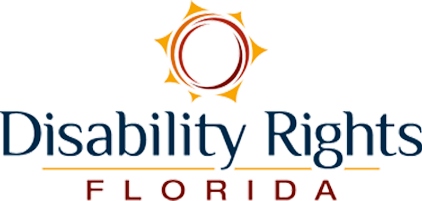People receiving mental health treatment and services have the right to report complaints about their care and treatment.

Internal Grievance
An internal grievance is a formal complaint you can file about the staff or services at a facility. All facilities that provide services must have a way to handle complaints from the people who receive those services. This includes investigating, tracking, managing, and responding to complaints.
When admitted to a facility, staff must tell you about the complaint/grievance process in a way that is accessible and understandable to you, including:
- How to file a complaint/grievance
- Timeframes for getting a response
- How you will get that response
- How you can appeal a response you don’t agree with
Filing a grievance
- Facilities typically have forms that you can use to document a grievance.
- However, they must accept any way you file a grievance as long as you tell them it is a formal grievance. This means you can share your issue through a written note or a verbal complaint.
- You can file a grievance, or someone else can do it on your behalf.
When to file a grievance:
- You can file a complaint when you think your rights are being violated or if the facility is not addressing your concerns properly.
- Some examples of this include communication issues, care or custody of personal property, quality of treatment, informed consent, and telephone or mail access.
- Grievances typically focus on a violation, or perceived violation, of your rights.
- While an abuse/neglect complaint could be filed as a grievance, those are serious offenses that are considered separate from the grievance process and have different policies and procedures.
Reporting Abuse and Neglect
Staff must inform you both verbally and in writing about the procedure to report abuse/neglect. They also must share the information with you in a way that is understandable to you.
Everyone receiving mental health treatment must have ready telephone access to report alleged abuse and/or neglect. Staff also must post the abuse reporting procedure, the central abuse hotline number, and reporting forms where you can easily see them.
Who to contact:
Abuse and/or neglect can be reported to the following organizations/agencies:
- Disability Rights Florida
- Phone: 1-800-342-0823
- TDD: 1-800-346-4127
- Inpatient Intake Line: 833-500-1099
- Department of Children and Families (DCF)
- Abuse Hotline
- Phone: 1-800-96-ABUSE
- TDD: 1-800-955-8771
- Abuse Hotline
- Agency for Health Care Administration (AHCA)
- Phone: 1-888-419-3456
- TDD: 1-800-955-8771
Writ of Habeas Corpus
- Habeas Corpus is a court process that protects people from unlawful confinement.
- If you are questioning the reason or lawfulness of being in a mental health treatment facility, you can petition for a 'writ of habeas corpus.’ This will request that a court investigate your detention and/or your alleged rights being violated.
- A relative, friend, guardian, guardian advocate, representative, or attorney, or the Department of Children and Families may also petition on behalf of a person held in a facility.
- The facility must give you written notice of your right to petition for a writ of habeas corpus.
- Once you submit the petition, the facility's administration must file it with the clerk of the court on the next court working day. You will not be charged a fee for filing a petition.
The above information can be found in F.S. 394.459 Rights of Patients and FAC 65E-5.140 Rights of Persons.
The information provided herein does not constitute legal representation or advice.
